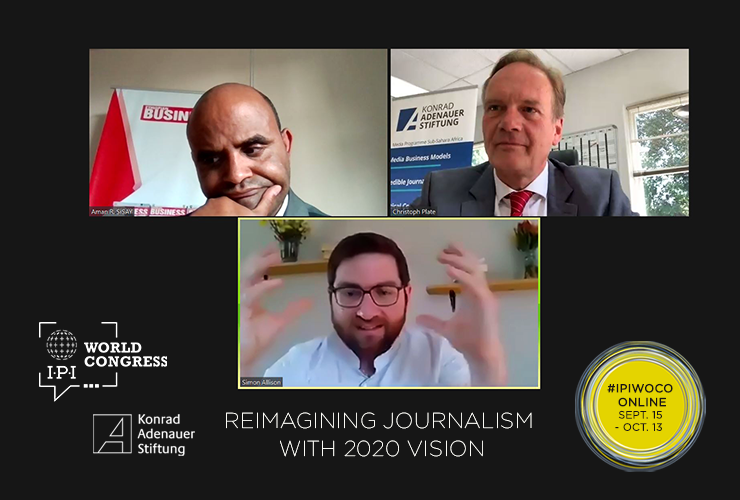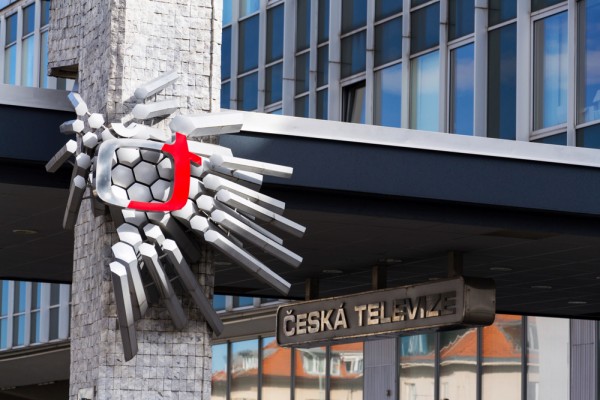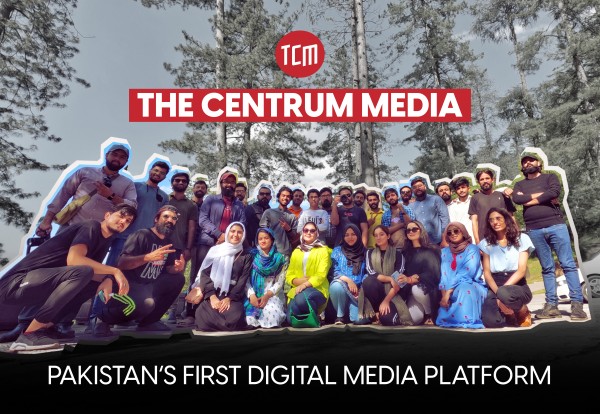The pandemic triggered a rush to trusted sources of information, showing again the value of independent journalism, but the challenge is translating that to revenues. The loss of journalistic resources together with an onslaught of misinformation polluting the information ecosystem has also weathered trust in media compared with earlier times when journalism was at the forefront of the democratic resurgences across Africa.
How did the credibility crisis come about? How might media organizations and individual journalists withstand political and economic pressure? How do media retain experience in newsrooms, and encourage the best to join the craft? How might the media itself become more innovative? And what part has the media itself played in creating the credibility crisis and can it be undone?”
Please accept cookies to access this content
These are some of the urgent challenges for journalism in Africa according to Christoph Plate, who leads the KAS media program in Sub-Saharan Africa. This decline in media quality is partly to do with the economics of journalism, but also for some journalists, a failure to distinguish between journalism and activism.
With the pandemic driving readers to news sites, “the connection between credibility and economics persists even stronger” he told the IPI World Congress. How can the media maintain and sustain this trust and credibility?
We need a government that strongly believes in democracy and free speech
Ethiopian media is operating in a hostile environment. “But we always have to rise above our challenges and hope for a better day”, said Amanyehun Sisay, executive editor of the Ethiopian Business Review (EBR) before listing the obstacles standing before his two publications, EBR and the Amharic language weekly Addis Maleda. “Media as a business is never an encouraged investment and journalism as a profession is not appreciated,” he said. “Operating in this context, especially under an authoritarian regime, is quite difficult.”
According to Sisay, the politicized media landscape is torn between two narratives that follow the ethnic divisions in the country.
“So the content is based on the media institution’s political interests” he said, “but the real issues are not discussed … political issues are only discussed on social media, where people can stay anonymous.” But Sisay is not entirely optimistic about the role of social media in the country’s media landscape. “We have a worrisome spread of fake news, stemming from the fact that as mainstream media weakens and fails to provide enough information, people search for it on social media instead.”
One strategy to build credibility for Sisay has been to expand the media offering to Amharic language, which brings a much broader readership and satisfies a need in the community for quality, verified information.
The next generation of journalists is also endangered, according to Sisay: “Most journalism schools are government owned, and they flood the industry with poorly educated journalists.” Based on his experience, Sisay said graduates from government owned schools “are not well equipped to report fairly,” and need a lot of training. Furthermore, due to the industry’s financial situation many leave the profession as soon as possible. “We rarely have journalists with a decade or more of experience in the field.”
Please accept cookies to access this content
People pick media outlets almost like they pick football teams
The media in South Africa is divided and “those divisions are becoming more pronounced”, according to Simon Allison, Africa editor of the Mail & Guardian and The Continent. “A website like the Daily Maverick could publish an investigation and there will immediately be a section on social media dismissing it as ‘white monopoly capitalist’ even before reading the investigation.”
But he is positive about the future: “While the pandemic had a devastating impact on the finances, it also played a key role in restoring trust in journalism. The number of people coming to our website was extraordinary. What that showed us, is that when times are tough, they turn to places that they know they can trust.”
While he notes there is better media literacy and people are becoming more aware of the need for independent journalism, the challenge is translating that to revenue. “The economics of journalism is the greatest threat to journalism” he says. “Good journalism is expensive, takes a lot of effort and behind the scenes work, you can’t really skimp on it.”
He also wants to encourage donors to support the media: “The entire civil society depends on having accurate reliable news. Without it there is nothing.” But he cautions against funding specific projects, and instead “funding core news reporting so that there can be a broad base of news from which to work from.”
Allison points to the Gupta leaks story that was a collaboration of media houses as “extraordinary”. “That more than anything else was a reminder to people that journalism is powerful. With great power comes great responsibility. We have to uphold the highest standard possible but also find new ways to connect with our audiences, to make sure we are speaking to potential audiences where they are, and make sure our journalism evolves with our audiences.”
Sisay agrees that “the trick is to find new audiences. That’s where it requires a lot of bold and innovative thinking within the newsroom. I’d like to see a lot more of that.”
Please accept cookies to access this content
For Allison, one of the clues is understanding that it’s a natural desire for humans to want to share information. “It makes us what we are, keeps us a society. What we’ve done a bad job of is giving people information in a way that they can share it. WhatsApp is a great example of this. Almost no major media house has any presence on this medium. The only people making news on WhatsApp are people making fake news.”
_________________________
* This panel discussion was organized in partnership with Konrad Adenauer Foundation (Media Programme Subsahara Africa).
** Joan Chirwa, founder of the Free Press Initiative in Zambia, announced as one of the speakers, was not able to join the discussion.




